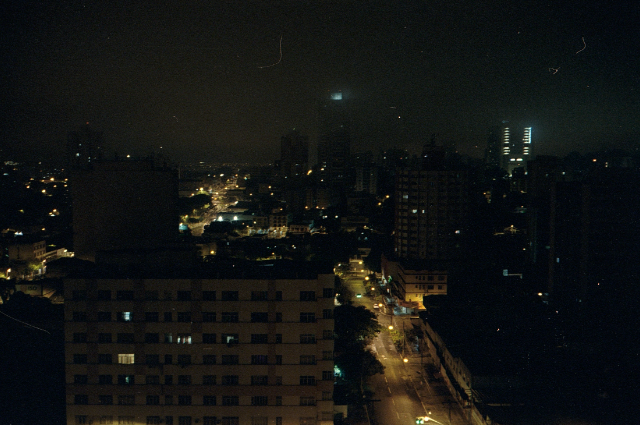
Photo by Júlia Borges on Unsplash
Have you ever noticed how silence isn’t really silent? When everyone’s asleep, when traffic stops, and lights go out, the air suddenly begins to hum. You hear the fan, the fridge, your heartbeat, maybe a dog barking far away. It’s strange—when the world goes quiet, our thoughts start shouting. That’s the sound of loneliness. Not noise, just the echo of your own mind.
Why Night Feels Heavier?
During the day, our brains are busy. We have people to talk to, things to do, screens to stare at. But at night, distractions fade, and we finally face the person we’ve been avoiding all day: ourselves. That’s why loneliness doesn’t always mean being alone. You can sit in a crowded room and still feel empty, or lie alone and feel full of thoughts. Silence at night simply removes the background noise that hides your feelings.
The Science of Silent Noise
Here’s the weird part: the brain hates silence. In total quiet, it starts amplifying small sounds like the ticking of a clock, your breathing, or the buzzing in your ears. It does this to protect you, as if saying, “Don’t relax too much; something might be out there.” This is an old survival reflex from the time humans lived in forests, when silence often meant danger. That’s why night feels longer when you’re sad or anxious. With the world quiet, your brain replays old memories, regrets, and conversations. You can’t hear the world, so you hear yourself.
The Hidden Power of Small Sounds
Night isn’t really quiet, though. It’s full of small, honest sounds we ignore during the day—the distant rumble of a train, the rustle of a curtain, your heartbeat echoing against the pillow. These sounds prove that life hasn’t stopped; it’s just resting. Some people fear these sounds because they make them feel exposed, while others find comfort in them. In those small, quiet noises, there’s a kind of truth that doesn’t speak but simply exists.
Why People Suddenly Feel Sad at Night
Have you ever noticed how memories come alive after midnight? That’s not random. At night, your brain releases more melatonin and less serotonin, slowing your thoughts but deepening your emotions. You start remembering things you thought you’d forgotten—not because you’re weak, but because your brain finally has space to process them. Loneliness at night isn’t a curse; it’s your brain trying to heal through reflection. You’re simply hearing the background music of your own emotions.
Technology and the Fear of Quietness
Modern technology has made silence almost extinct. Phones buzz, videos play, playlists run on loop; we use noise to hide from ourselves. We scroll because silence is uncomfortable, and we wear headphones in public not just for music but for protection from our thoughts. Yet silence isn’t the enemy—it’s a mirror. Without it, you can’t hear what your heart truly wants. Sometimes you’re not bored; you’re just lonely. And sometimes you’re not lonely; you’re finally listening.
The Different Types of Loneliness
Loneliness comes in many forms. Social loneliness is the absence of people, friends, or connections. Emotional loneliness is missing a specific person or bond. Existential loneliness is the quiet fear that nobody will ever truly understand you. Nighttime often brings out the third kind. It’s not sadness but awareness. You suddenly realize how vast the world is and how small you are. Yet this awareness can also be humbling, reminding you that everyone experiences this same silence at some point.
Turning Silence Into Strength
What if, instead of running from the quiet, you used it? Some people keep a notebook beside their bed—not to write perfect sentences, but to unload their thoughts. Others talk to Allah, the universe, or simply to themselves. That’s how silence becomes therapy. Sit with your thoughts for a few minutes without touching your phone. Let the quiet wash over you. At first, it may feel unbearable, then peaceful. You begin to realize that silence is not empty; it’s full of answers.
Cities That Never Sleep
In big cities, people fight silence like it’s a disease. There’s always traffic, honking, neon lights, and constant movement. Yet deep down, everyone is running from the same thing: the moment the noise stops. Because when it does, the truth comes out. Success doesn’t always mean happiness, and company doesn’t always mean connection. That’s why some people travel to mountains or beaches—they think they’re escaping the city, but really they’re learning how to listen again.
The Beauty of Night Loneliness
Loneliness at night is like a secret teacher. It forces you to reflect, forgive, and grow. It teaches that your thoughts are not enemies; they’re messages. It reminds you that you don’t need constant company to feel alive—you just need presence. When you can sit in the quiet and feel okay, that’s real strength. That’s when loneliness turns into peace.
Next time the night goes silent, don’t reach for your phone immediately. Breathe. Listen to the air, the small hums, the heartbeat. That’s the sound of life continuing, even when it’s quiet. That’s the sound of your own existence, asking to be heard. Silence isn’t empty; it’s simply waiting for you to notice it. And sometimes, the loudest truths arrive only when the world finally goes quiet.
